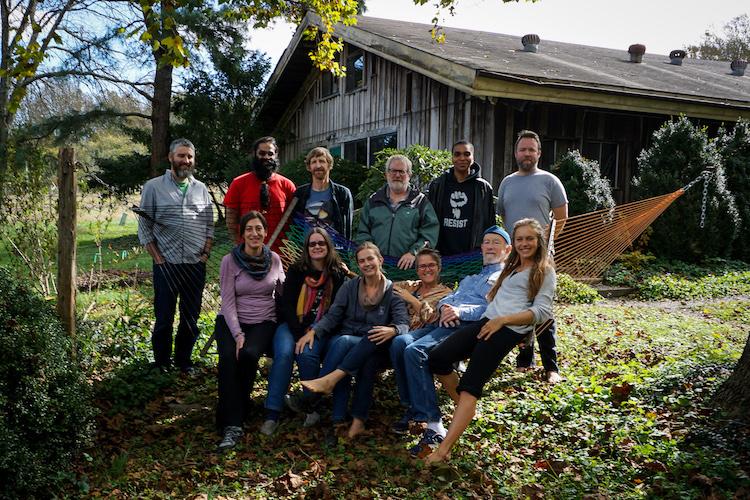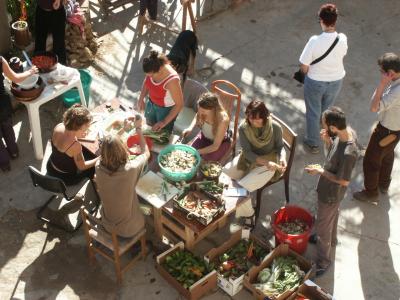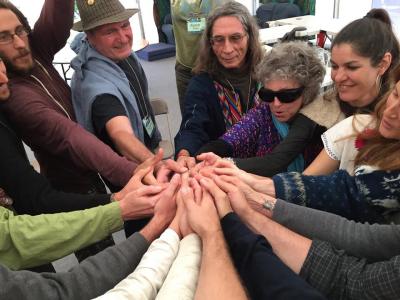
 Intentional communities go by many names: ecovillage, commune, co-housing, housing co-ops and more.
Intentional communities go by many names: ecovillage, commune, co-housing, housing co-ops and more.
If you’ve spent time at one, you probably noticed that intentional community feels different than normal living. Some describe the feeling as a sense of greater freedom and belonging, room to experiment and be different, space to practice communication and collaboration skills, a hub of inspiration and potential solutions to the world’s many challenges.
It’s easiest to think of an intentional community as a place. But at their core, intentional communities are about relationships of sharing – people sharing space, sharing resources, sharing lives. They usually have some kind of organizational structure and a set of shared values. They can be rural or urban, a handful of people or hundreds, secular or spiritual.
Intentional communities offer ways we can work together to meet our basic needs that are more socially satisfying, financially affordable, and ecologically sustainable. Community can be a deeply fulfilling and beautiful way to live. The lifestyle can also improve your health.
A recent Time Magazine feature explores the health benefits of intentional communities in depth. Below is an excerpt:
 “We evolved to depend on our social connections,” says Dr. Vivek Murthy, former U.S. Surgeon General. “Over thousands of years, this got baked into our nervous systems — so much so that if we are feeling socially disconnected, that places us in a physiologic stress state.”
“We evolved to depend on our social connections,” says Dr. Vivek Murthy, former U.S. Surgeon General. “Over thousands of years, this got baked into our nervous systems — so much so that if we are feeling socially disconnected, that places us in a physiologic stress state.”
According to a study by AARP, over 40% of American adults suffer from loneliness, a condition that, Murthy warns, is as dangerous to our physical health as smoking 15 cigarettes a day, increasing the risk of cardiovascular disease, diabetes, cancer and more…
“Intentional communities are about creating attachment, the feeling that someone has your back,” says Harvard University psychiatrist Robert Waldinger, director of the Harvard Study of Adult Development, a decades-old survey of the health of a population of Harvard graduates and their descendants. “We often ask people in studies, ‘Who would you call in the middle of the night if you were really sick or scared?’ Intentional communities can help you have an answer to that question.”
Curious about how you can connect to intentional communities?
The Foundation for Intentional Community (FIC) supports 1000+ intentional communities worldwide. The organization recently transformed its online platform - ic.org - to be more accessible and attractive. You can explore the Communities Map to find a community near you. If you’re interested in joining or starting a community, this is the place to start.

Add new comment